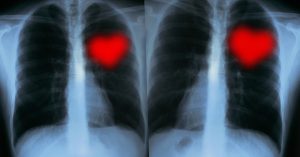The Dangers of High Cholesterol
Having high cholesterol raises your risk of heart disease, yet, according to the Centers for Disease Control and Prevention (CDC), only “slightly more than half of the U.S. adults (55%, or 43 million) who could benefit from cholesterol medicine are currently taking it.” Considering that heart disease and stroke are the leading causes of death on the planet, it’s crucial that people who are at risk of developing high cholesterol take the necessary steps to prevent or address it.
Below, we discuss the dangers of high cholesterol and how you can take steps to improve your heart health. If you are concerned that high cholesterol is impacting your life, schedule an appointment with the best heart doctor in Tampa Bay from Ascent Cardiology Group. Just one checkup could end up saving your life.
Below, we discuss the dangers of high cholesterol and how you can take steps to improve your heart health. If you are concerned that high cholesterol is impacting your life, schedule an appointment with the best heart doctor in Tampa Bay from Ascent Cardiology Group. Just one checkup could end up saving your life.
Good and Bad Cholesterol
Cholesterol is a fatty substance that can be found in blood and all throughout the body. Believe it or not, cholesterol isn’t necessarily bad and is actually necessary for the production of cells. There’s good cholesterol, high-density lipoprotein (HDL), that takes excess cholesterol and bad cholesterol, low-density lipoprotein (LDL), back to the liver to be metabolized. It’s only when you have too much LDL or too little HDL that this essential substance becomes hazardous to your health.
Reduced Blood Flow and Complications
When your cholesterol levels are abnormal, cholesterol begins to build up in the form of plaque in your arteries, which restricts blood flow. Over time, arteries become narrower and less flexible, leading to a condition known as atherosclerosis. There is the additional danger that plaque can block an artery and cause a heart attack or stroke.
Preventing and Reducing High Cholesterol
Normally, a person with high cholesterol experiences little to no symptoms, which is why it’s so important to schedule a blood test with a heart doctor in Tampa Bay and to be mindful of risk factors that could increase your chances of developing high cholesterol. While family history does play a role in high cholesterol, it’s also linked to:
• Poor Diet
• Inactive Lifestyle
• Obesity
• Smoking
Preventing high cholesterol means addressing the above issues if any of them apply to you. By embracing an active lifestyle, many people can reduce their risk of heart disease. However, cholesterol medications can be employed if lifestyle changes have not led to reduced cholesterol levels. The only way to be sure that the right approach is taken is to schedule an appointment with the best heart doctor in Tampa Bay.
As mentioned above, a blood test is the only sure-fire way to detect cholesterol. Once diagnosed, the professionals at Ascent Cardiology Group can recommend lifestyle changes, prescribe medication, and monitor your progress. The path to a healthy heart can be difficult, but with a heart doctor in Tampa Bay by your side, you’ll find that a life free from the worries of heart disease is within reach. Put your mind at ease by scheduling a blood test at Ascent Cardiology Group.
• Poor Diet
• Inactive Lifestyle
• Obesity
• Smoking
Preventing high cholesterol means addressing the above issues if any of them apply to you. By embracing an active lifestyle, many people can reduce their risk of heart disease. However, cholesterol medications can be employed if lifestyle changes have not led to reduced cholesterol levels. The only way to be sure that the right approach is taken is to schedule an appointment with the best heart doctor in Tampa Bay.
As mentioned above, a blood test is the only sure-fire way to detect cholesterol. Once diagnosed, the professionals at Ascent Cardiology Group can recommend lifestyle changes, prescribe medication, and monitor your progress. The path to a healthy heart can be difficult, but with a heart doctor in Tampa Bay by your side, you’ll find that a life free from the worries of heart disease is within reach. Put your mind at ease by scheduling a blood test at Ascent Cardiology Group.
To consult a heart doctor in Tampa Bay from Ascent Cardiology Group, please request an appointment today.
Disclaimer: The contents of this website are for general educational purposes only. All content and media on the Ascent Cardiology Group website does not constitute professional medical advice nor is the information intended to replace the services of Ascent Cardiology Group or other qualified medical professionals. If you believe you are having a medical emergency, call 911 immediately.
The content, views, and opinions communicated on this website do not represent the views of Ascent Cardiology Group. Reliance on any information provided by this website is solely at your own risk. Although this website contains links to other medical websites, this is strictly for informational purposes. Ascent Cardiology Group is not responsible nor do they approve of the content featured on any third party linked websites referenced on this website.
The content, views, and opinions communicated on this website do not represent the views of Ascent Cardiology Group. Reliance on any information provided by this website is solely at your own risk. Although this website contains links to other medical websites, this is strictly for informational purposes. Ascent Cardiology Group is not responsible nor do they approve of the content featured on any third party linked websites referenced on this website.
More Resources

Stress and Heart Disease: What You Can Do to Improve Your Heart Health
Working long hours, filling up free time, and taking on additional responsibilities is a way of life for Type A

What is Nuclear Cardiology?
Nuclear cardiology is a subspeciality of general cardiology that involves the use of radioactive substances and advanced medical imaging modalities

Coronary Heart Disease: What Is It and How Is It Treated?
In addition to being the most common type of heart disease, coronary heart disease is the deadliest. In fact, it’s